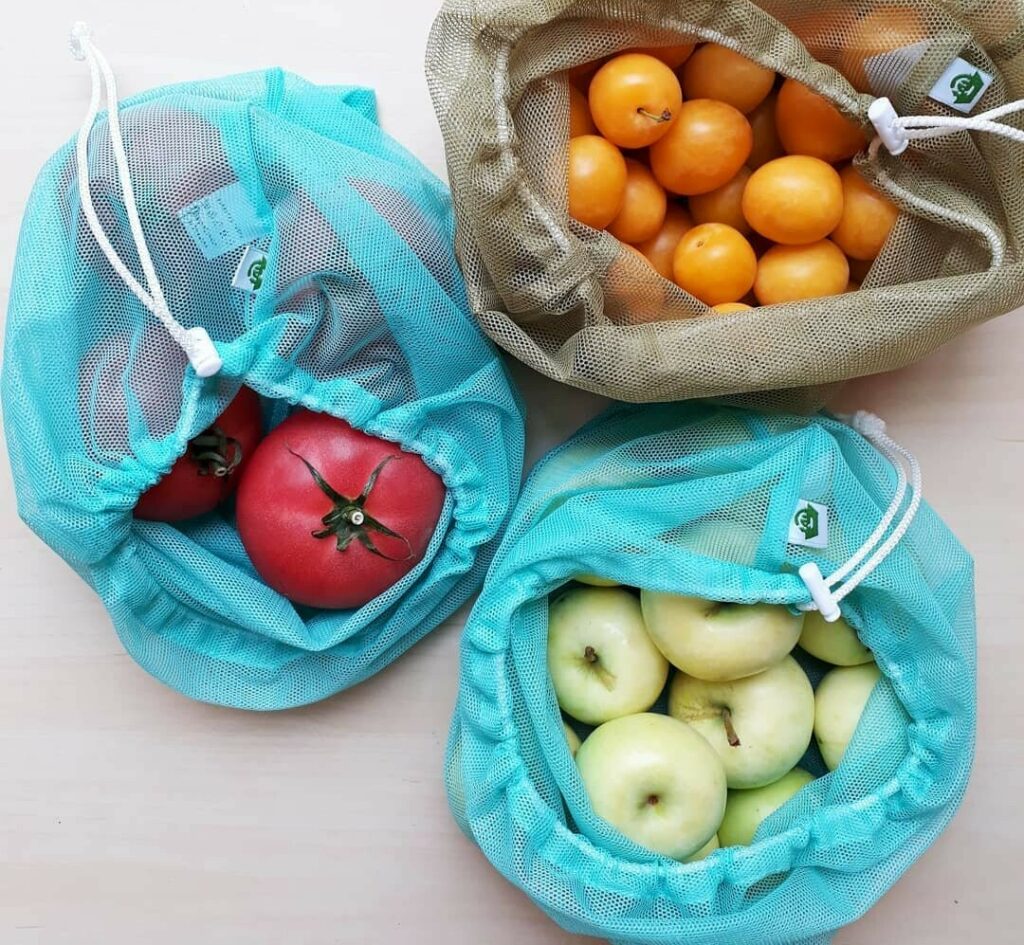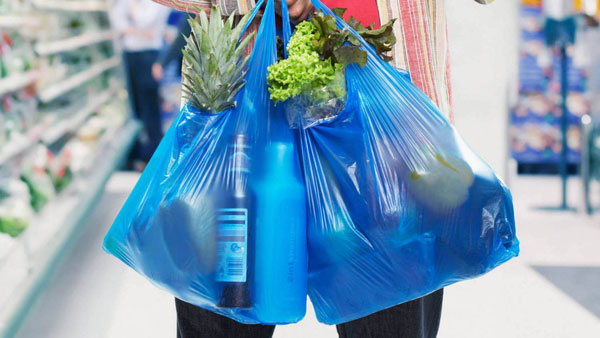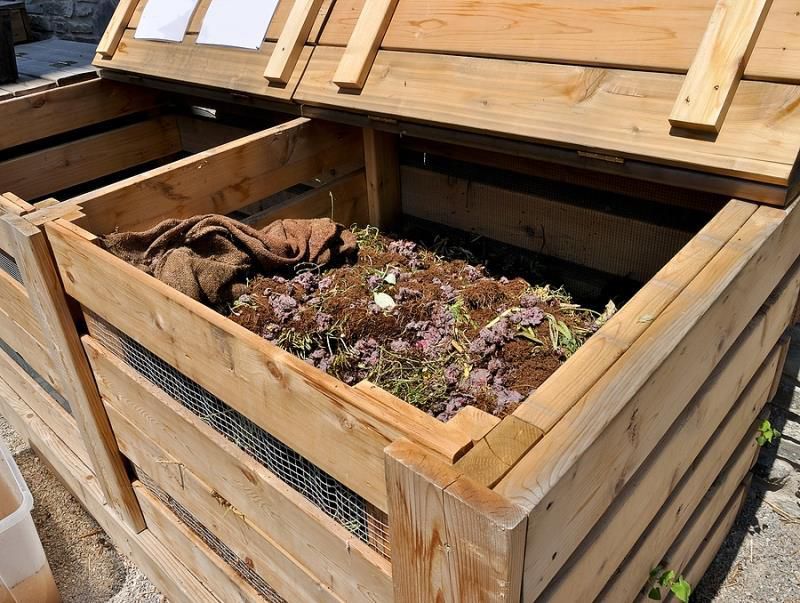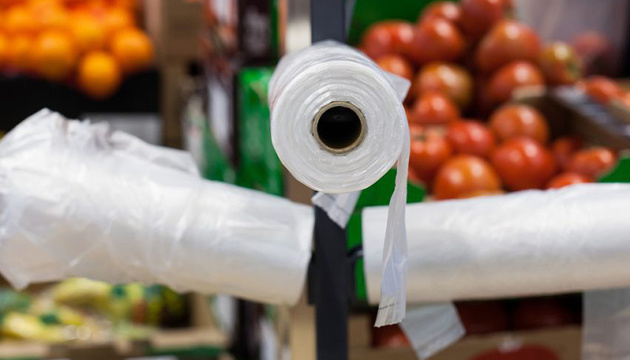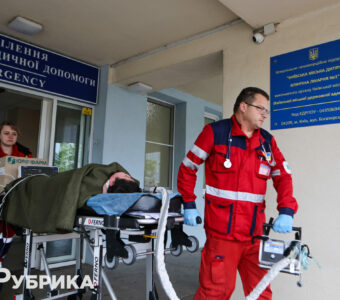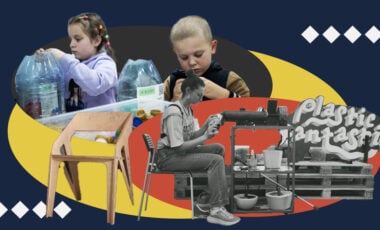Real price of plastic bags is health. How the ban works in Ukraine
"Consumers have been blamed for causing environmental pollution, but in fact, package manufacturers, importers, retailers are to blame," environmental activist Anastasia Martynenko said of the law banning plastic bags.
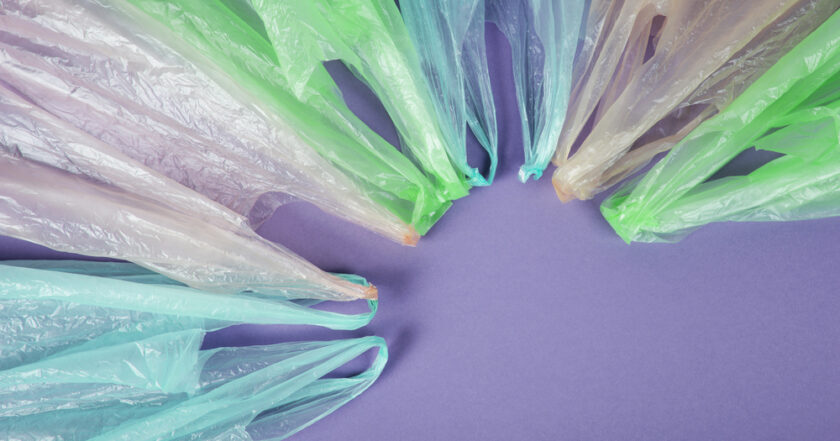
At the end of last year, a law restricting the circulation of plastic bags came into force in Ukraine. Such a legislative initiative, according to people's deputies, is a response to the amount of polyethylene consumed by Ukrainians. Thus, according to official statistics, every year each citizen uses about 500 plastic bags. The average duration of their "life" is 20 minutes, and the decomposition period is from one hundred to four hundred years.
What is the problem?
According to the UN, 5 trillion plastic bags are used in the world every year. At the same time, 8 million tons of plastic enter the ocean every year, and more than 13 billion plastic bags are produced annually in the world, i.e. 300 units per adult inhabitant of the Earth. According to environmentalists, polyethylene decomposes in the natural environment for more than 200 years, and plastic, more than 450. And more: the average lifespan of such a package is only 20 minutes.
As for the damage to nature, it is difficult to argue. The World Wildlife Fund estimates that about 100,000 whales, seals, and turtles die each year from plastic bags. At the same time, whole islands of polyethylene are increasingly migrating across the ocean, and microscopic plastic particles are entering the soil and water. And even to the human body: Italian researchers have found microplastics in the human placenta.
"We recently translated a report on plastics and health into Ukrainian. So, the impact of plastics on health begins at the stage of oil and gas production. There is little talk about it and that's why it's hard to imagine," says the head of the public organization Zero Waste Society, Anastasia Martynenko. "After all, a person seems to just take a bag, so what do the mining companies have to do with it here?
People living around these enterprises, wherever they are located, in Ukraine or abroad, are already suffering from their emissions. And no one controls what chemicals are added to these bags. Also, as a rule, food products come into contact with the bag, i.e. something can also transfer into the products. And after use, these plastic bags will either lie in landfills or burn, depending on where you live. For example, part of Kyiv's waste is incinerated at the Energia waste incineration plant. And that's not good either, because that's how we make this waste more toxic and dangerous. After all, we breathe smoke from burning. And what is left after, in turn, will become toxic ash, which must also be buried somewhere."
What was the solution?
The law passed by parliamentarians in the first stage primarily prohibits the free distribution of ultra-thin and some thin plastic bags. Violators will be fined from UAH 1.7 thousand to UAH 3.5 thousand. From March 10, 2022, the fines will range from 8.5 thousand UAH to 17 thousand, and in case of repeated violations, from 17 to 34 thousand.
"The largest amount in question is 34,000 hryvnias. For big business, it's small money. That's why it's not efficient enough. It's hard to do, it's hard to control. But it's good that this topic is being raised in society and the first step has already been taken," says Anastasia Martynenko.
At present, bags that are banned for free distribution are mostly sold at a price of 8-12 kopiikas per piece.
"I think it's normal practice to set the price. But the emphasis is done in the wrong way: consumers are responsible as if they were the cause of waste pollution," the activist continued. "In fact, it is the package manufacturers, importers, retailers to blame. And it's not consumers who should suffer, but retail should figure out how to solve this problem. Business is part of this problem. This must be acknowledged and resolved. And the responsibility should be transferred to more than one stakeholder. I am in favor of involving business, government, and consumers. Everyone must work together on the problem of waste pollution."
It is difficult to give up habits in one day. But this law is one of the economic incentives that will help, the activist is convinced.
"First, we must understand that such waste management is not harming to the environment, it is harmful to our health. That is, it is not the environment that suffers, but we, the people, suffer," said Anastasia Martynenko.
Businesses need to take responsibility and move to multiple initiatives.
How does it not work?
According to the activist, the law isn't sufficiently enforced at the moment: "At different points, we see different prices for bags that have been banned for free distribution. Although the government has already set a fixed price. The State Food and Consumer Service have a lot of work to do and doesn't have time to monitor it, especially since pop-up markets, for example, cannot be monitored at all.
Another shortcoming of this law is the lack of ambition. I am grateful to my colleagues who worked on it and promoted this document. But we are still waiting for the adoption of the framework draft law on waste management, and then based on its adoption, other draft laws. About hazardous waste, about restricting the use of disposable plastic as packaging. The adoption of the framework law is hampered primarily by those who find it unprofitable. As a rule, these people are connected with the business, with big business."
Advantages of the solution
"It's great that they've limited the distribution of oxo-degradable bags. These are the ones that decompose quickly into microplastics. And that's not good, because it, in turn, means it gets into the human body faster and will hurt health," said Zero Waste Society chairperson Anastasia Martynenko.
World experience in the fight against plastic bags
- In 1994, Denmark introduced a tax on the free distribution of plastic bags in retail outlets. After introducing polyethylene fees in the country, its popularity among buyers decreased by 90%.
- In Germany, consumers pay for the disposal of packages, and sellers and distributors are responsible for collection and recycling.
- In Ireland, after the increase in the price of packages, their number decreased by 94%. Now there are reusable fabric bags.
- In San Francisco, the USA, supermarkets and chain bags don't use plastic bags. Hawaii became the first state that refused to use packages at all.
- Tanzania has imposed a fine on the production, import, and sale of plastic bags in the amount of 2 thousand dollars or, 1 year in prison.
- The import of plastic bags to Zanzibar is generally prohibited.
- Authorities have banned plastic bags on Kangaroo Island in Australia since January 2004. By the end of 2008, a direct ban on the use of plastic bags in supermarkets was introduced.
Even more useful solutions!
Disposable plastic bags can be replaced by an alternative: reusable shoppers, pouches, bags, containers, waxed paper.
"There should be some information campaign, support for businesses that are already implementing this law and are already offering multiple alternatives. That is, there should be multifaceted work, from many fronts," said the activist.
According to the activist, the biodegradable packages promoted by this law are not the solution:
"According to our fellow experts from the EU and other countries, it is logical to use bioplastics, in particular bioplastic bags, if there is any benefit. For example, we collect organic waste separately at the city level and then compost it. That's when it makes sense. Then it makes sense to high costs.
Why is bioplastic bad?
First of all, because it uses bio raw materials, it is not safe. To grow it, for example, somewhere in Brazil, India, or China, vast areas of forest have been cut down and the land treated with pesticides, polluting soil, air, and water. Accordingly, the local population suffers. Then all this will float somewhere (and leave a huge carbon footprint) and eventually turn into granules, which will produce bags, add plasticizers, various chemicals, etc.
Thus, even if the package says 'home compost,' it will not decompose on its own if it enters the environment, because it requires a certain humidity, temperature, and so on. And yet, it is not safe, it will not be a quality fertilizer. And if it ends up in landfills or finds itself somewhere in the trees, it will also hang next to other plastic bags, but it will say 'bio.'"
If you compare plastic and bioplastic bags, the former can even win in the environmental sense.
"It's important to replace the disposable with the reusable," says Anastasia Martynenko, chair of the Zero Waste Society. "It's less convenient. But who said an environmental solution should be as convenient as possible? Sometimes, to solve a problem, you first have to make a mistake and then solve it.
Such 'convenience' costs us health. Therefore, it is important to have reusable bags and sacks in the household. They can be purchased, you can sew them yourself, for example, from sheets. And even all the big retailers already have a section that sells reusable bags in their outlets. You can use a container for wet products. For example, I have two metal containers. You can also go the easy way and use a glass jar. Of course, not all products can be bought this way, but many things are still possible. I buy sour cream on the market in my glass jar."
It is necessary to change consciousness gradually; changing everything in one day can be too radical.
According to the activist, it is still unknown whether the use of plastic has decreased. But the fact that there are fewer people who have packed products dozens of bags is a fact: "By the way, we are currently conducting a study to measure the efforts of Ukrainian supermarkets to reduce plastic pollution. We will publish the report in a month and a half."
How to influence those who are against it?
"It is very difficult to influence or motivate another person. Therefore, it is important that motivation comes from within. You need to set an example and not press. So to pass the necessary draft laws, we, activists, need to talk more about alternatives, why we need to move to reusable and refuse any packaging where it's not necessary," Anastasia Martynenko believes.
You should start reducing the use of packages, give it up where possible, and look for multiple alternatives.
"As for, for example, businesses that want to give up plastic, but don't know what to do, I advise you to ask public activists, their clients. Ask for support and don't be afraid, please, because it's important and even positive for the image. Everyone has a role. If you're a consumer, try to use less plastic. If you are a business, try to use it less too. And you will motivate others. Never think that you are too small to make changes. Every one of us creates change, which is happening here now," sums up the head of the public organization Zero Waste Society, Anastasia Martynenko.
The article was prepared based on the Activation with Liudmila Tiahnyriadno program, which is broadcast on Ukrainian Radio and Radio Culture.
Listen to the broadcast: https://cutt.ly/HIBm6SB
Watch the broadcast: https://cutt.ly/tIBQiov




